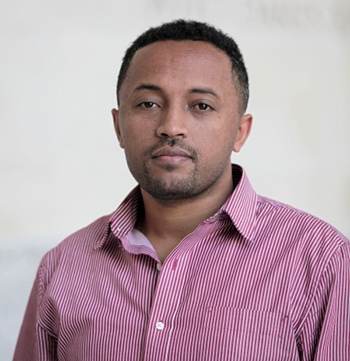Latest News Archive
Please select Category, Year, and then Month to display items
25 March 2024
|
Story Anthony Mthembu
|
Photo Lutendo Mabata
 Prof Nompumelelo Zondi, the newly appointed Vice-Dean: Research and Postgraduate Studies in the Faculty of The Humanities at the University of the Free State (UFS).
Prof Nompumelelo Zondi, the newly appointed Vice-Dean: Research and Postgraduate Studies in the Faculty of The Humanities at the University of the Free State (UFS).
Prof Nompumelelo Zondi has been appointed as Vice-Dean: Research and Postgraduate Studies in the Faculty of The Humanities at the University of the Free State (UFS). Prof Zondi assumed this new role on 1 March 2024 after serving as the Head of Department for African Languages at the University of Pretoria for seven years. “I consider this appointment as an opportunity of growth and learning more about higher education and the Faculty of The Humanities at large,” she said.
Prof Zondi indicates that part of her role is to spearhead the UFS Vision130 within the Faculty of The Humanities, and to ensure that the faculty assists the institution in becoming research-led, student-centred, and globally impactful.
Motivation for assuming this role
One of the primary reasons that led her to consider this role is sharing the knowledge she acquired as part of the Fulbright South African Research Scholar Programme. As a result of that experience and exposure, which went beyond the Ohio State University, she felt it befitting to implement some of the insights she acquired on a bigger scale. Therefore, even though she was impactful in her previous role, Prof Zondi believes that this is an exceptional and more desirable platform to do so. “I feel that I will have easier access to departments within the faculty, while also encouraging and supporting interdepartmental and faculty collaborations,” she explained.
A significant component of Vision 130
He believes that the elements that make up Vision 130 are interrelated. While she considers research central to Vision 130 – as she begins her journey at the UFS, she feels students deserve to be nurtured to further contribute to the university’s impactful research. Thus, student-centredness is the way to go. “I believe that students must be major role players in this Vision130; we must include them in the interactions and discussions that are part of the university’s strategic plan as well as in decision-making processes,” she said. As such, according to Prof Zondi, the more the faculty and the institution care for the students and involve them in Vision130 and in collaborations, the more research outputs the university will achieve.
First UFS/AS Young African Scholar Award winner announced
2016-03-10

Fana Gebresenbet Erda, winner of the first University of the Free State /Africa Spectrum Young African Scholar Award, for his research on political economy.
Photo: Supplied |
Scholarship in African Studies still faces the challenge of capacity-building to increase ownership by authors and institutions from and on the African continent. It also requires more coordinated efforts to provide the space deserved by African authors in the international domain. In 2015, the University of the Free State (UFS) Centre for Africa Studies joined forces with Africa Spectrum (AS) in a bid to address this issue by establishing the UFS/AS Young African Scholar Award.
This award seeks to strengthen efforts to promote internationally recognised African scholarship in African Studies. One way to achieve this objective is through publishing articles by researchers based in Africa and in the diaspora in Africa Spectrum, an accredited journal compiled by the German Institute of Global and Area Studies in Hamburg.
The inaugural award winner
Fana Gebresenbet Erda, a PhD candidate in a Global and European Studies programme jointly offered by the University of Leipzig (Germany) and Addis Ababa University, wrote the winning article for 2015. He will receive a three-year affiliation to the UFS Centre for Africa Studies as a Research Fellow, along with prize money of R5 000, sponsored by the UFS.
His article, The Ethiopian Developmental State in Its Peripheral Lowlands: Large-Scale Land Acquisitions, the Politics of Dispossession and State Remaking in Gambella, Western Ethiopia, argues that development through large-scale land acquisitions in Gambella, Western Ethiopia, belies a state-remaking project under a dispossessive political economy.
Submission now open
Africa Spectrum invites scholars to submit research articles in the context of the award. In October of each year a review committee selects submissions for review. Those eligible to submit are postgraduate students nearing completion of their PhD theses and postdoctoral scholars who were awarded their PhDs no more than five years earlier at the time of the submission deadline. Those submitting should be from Africa or should be affiliated to African institutions.